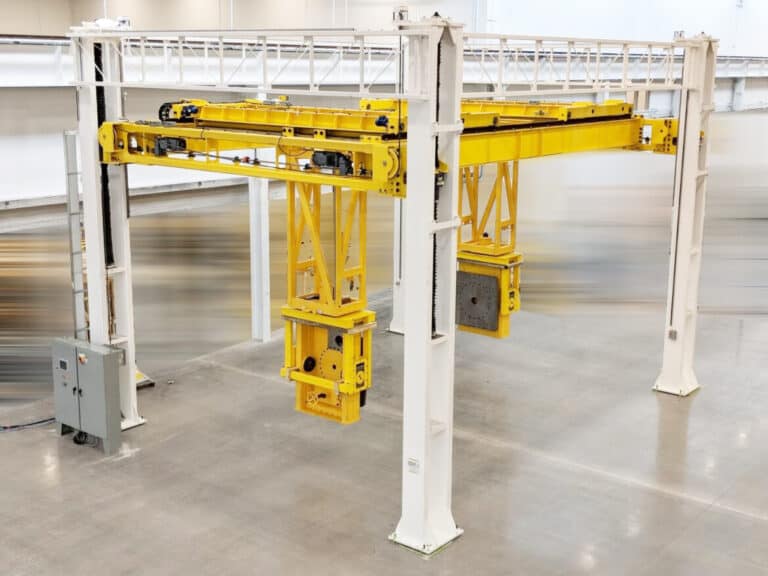Everything to understand about customs compliance in international moving
Wiki Article
Recognizing the Inclusions of moving and Freight Forwarding worldwide of Worldwide and residential Delivery
Guiding with the complexities of moving and Freight forwarding can be challenging. Both processes include unique treatments and requirements that are important for effective transport. Comprehending the distinctions in logistics, documents, and risk monitoring is essential for individuals and companies alike. This expertise can greatly influence the effectiveness and safety of shipments. However, numerous are not aware of the certain components that affect the overall experience and outcomes. What aspects should one take into consideration to guarantee a smooth changeover?The Fundamentals of moving and Freight Forwarding
moving and Freight forwarding are fundamental components of the global logistics market. They promote the transfer of products and personal belongings across domestic and international boundaries. moving primarily includes the relocation of families or people, incorporating property and commercial demands. It commonly includes packing, loading, transporting, and unpacking things at the destination. In comparison, Freight forwarding is concentrated on the delivery of goods, usually in bulk, making use of various transportation settings, such as land.freight, air, or sea forwarders work as intermediaries, coordinating logistics to assure timely distribution while steering via facility regulations and customs procedures. Both processes need cautious planning, organization, and communication to assure performance and lessen interruptions. Understanding these principles is essential for any individual associated with logistics, as they lay the foundation for even more innovative aspects of shipping and transportation monitoring.Trick Elements of Freight Forwarding Providers
Freight forwarding services encompass a number of critical elements that ensure smooth transportation of products. Secret obligations of Freight forwarders consist of managing logistics, collaborating deliveries, and handling customs clearance. In addition, comprehending vital delivery documents is crucial for compliance and efficient movement of freight.Freight Forwarder Responsibilities
A reputable Freight forwarder plays a necessary duty in collaborating the transport of items, ensuring that deliveries are taken care of successfully and in compliance with policies. Their obligations include numerous crucial tasks, consisting of selecting perfect transport routes, working out Freight rates, and managing logistics. They act as middlemans between service providers and carriers, ensuring that freight is appropriately packaged and labeled for risk-free transportation. In addition, Freight forwarders track shipments, offering updates to customers concerning the status and anticipated shipment times. They additionally evaluate and handle dangers associated with transport, advising insurance coverage alternatives as required. By helping with communication and documents, Freight forwarders enhance the delivery procedure, decreasing prospective delays and improving general supply chain efficiency.Delivering Documents Basics

Comprehending Customs Clearance and Documentation
Accurate paperwork is essential in the customizeds clearance procedure, as it guarantees compliance with various guidelines. An overview of custom-mades regulations highlights the intricacies dealt with by shippers and Freight forwarders. Common clearance difficulties can significantly impact shipment timelines and expenses, making understanding this facet vital for reliable logistics.Significance of Accurate Paperwork
Steering via the intricacies of international shipping calls for an eager understanding of customs clearance and the crucial function of paperwork. Precise documentation is crucial for guaranteeing that shipments abide by regulations and reach their destinations immediately. Correctly prepared documents, including expenses of lading, business invoices, and packing lists, assist in smooth interactions with customizeds authorities. Mistakes can bring about delivery hold-ups, penalties, or even confiscation of goods. Comprehensive documents help in tracking shipments and fixing disputes. Businesses involved in moving and Freight forwarding have to prioritize careful paperwork practices to browse the detailed landscape of international delivery successfully. This diligence not only improves operations but additionally enhances consumer contentment by making sure timely delivery.Custom-mades Rules Introduction
Steering customs guidelines is a crucial element of international profession that straight affects the success of moving and Freight forwarding procedures. Efficient customizeds clearance requires an understanding of different guidelines, consisting of tolls, obligations, and import/export constraints. Exact documentation is necessary, as it ensures compliance with legal requirements and promotes the effective motion of goods throughout boundaries. Key documents frequently include industrial invoices, packing listings, and bills of lading, which offer thorough information regarding the shipment. Additionally, customizeds brokers play a vital function in steering intricate regulations, serving as intermediaries between shippers and customizeds authorities. By keeping complete knowledge of customizeds processes, services can substantially decrease delays and lessen expenses connected with global shipping.Typical Clearance Difficulties
Many difficulties can emerge during the personalizeds clearance process, usually complicating the activity of items throughout borders. One substantial issue is inadequate paperwork, which can lead to penalties and hold-ups. Merchants and importers have to guarantee all called for paperwork, such as invoices, packing lists, and certifications of beginning, is full and accurate. Furthermore, disparities in appraisal can activate examination from customizeds authorities, resulting in added tasks or evaluations. Language obstacles might additionally present obstacles, as miscommunication can cause misunderstandings pertaining to regulations. Moreover, modifications in customizeds laws can develop complication, demanding consistent caution by carriers. Eventually, getting over these clearance challenges calls for extensive prep work and a clear understanding of custom-mades needs to facilitate smooth worldwide purchases.Packaging and Identifying Demands
Although commonly ignored, product packaging and labeling demands play a necessary duty in the delivery process, making sure that goods are protected and quickly recognizable throughout their trip. Proper packaging safeguards things from damage throughout transportation, while likewise helping with efficient handling and storage. Using appropriate products, such as bubble cover, foam, or tough boxes, can stop damage and loss.Labeling is similarly essential. Precise and clear tags share essential information, consisting of the location, taking care of instructions, and components. Tags need to abide by policies particular to global and residential delivery, which may consist of hazardous materials identification or personalizeds declarations.Moreover, standardized labeling methods simplify the monitoring process and improve general logistics effectiveness. By sticking to product packaging and labeling demands, services lessen the threat of delays, damage, or misdelivery. Eventually, these methods add substantially to the success of moving and Freight forwarding procedures, making her response certain a seamless shipping experience for all parties includedTracking Shipments: Importance and Approaches
Reliable product packaging and labeling established the structure for effective delivery monitoring, but tracking deliveries is similarly essential in the delivery procedure. Shipment tracking supplies real-time exposure, which helps businesses and consumers keep track of the development of their goods. This openness boosts client fulfillment, because clients can remain educated about delivery timelines and any type of prospective delays.Several techniques assist in effective monitoring. Barcode scanning is an usual method, using distinct identifiers to keep track of plans throughout their journey. Furthermore, GPS technology allows accurate location monitoring, enabling for timely updates and improved logistics monitoring. Many delivery companies now supply electronic platforms and mobile applications that offer customers with very easy accessibility to tracking information.The relevance of shipment monitoring can not be overstated; it decreases the threat of lost or harmed products, improves functional effectiveness, and fosters trust fund between shippers and receivers. As a result, integrating reliable tracking approaches is crucial for successful domestic and worldwide shipping procedures.Insurance policy Options for Your Goods

Protecting insurance policy for products in transportation is a crucial consideration for people and businesses alike. Insurance policy choices vary based on the kind of shipment, value of products, and particular threats entailed. Common types consist of service provider obligation, which covers loss or damage while en route, and full-value insurance coverage, providing substantial coverage for the complete value of the goods.Shippers might additionally take into consideration aquatic insurance coverage for worldwide shipments, shielding against threats connected with sea transportation. It is important to evaluate the particular requirements of the shipment and examine the terms of any policy.Furthermore, comprehending exemptions and restrictions is vital to prevent potential voids in protection. Carriers need to involve with insurance specialists to explore customized solutions that fit their one-of-a-kind circumstances. Eventually, investing in the right insurance can minimize financial risks and supply peace of mind during the delivery procedure.
Choosing the Right moving and Freight Forwarding Solution
When picking a moving and Freight forwarding solution, it is vital for people and services to meticulously evaluate their certain needs and priorities. Aspects such as the volume of items, location, and timeline play a significant function in this decision-making procedure. Looking into various suppliers is recommended; contrasting their solutions, pricing, and consumer testimonials can disclose valuable insights.Additionally, it is required to consider the experience and proficiency of the company in handling certain sorts of cargo, particularly for global shipments that might entail custom-mades clearance. Openness in rates, consisting of any hidden costs, must likewise be scrutinized.Furthermore, examining the level of customer support supplied is crucial, as timely interaction can alleviate issues throughout transportation (overseas movers). Verifying the accessibility of insurance policy alternatives guarantees that goods are protected throughout the shipping process. By taking these steps, people and companies can make educated selections that line up with their logistics needsRegularly Asked Inquiries
What Sorts Of Product Can Be Shipped Internationally?

How Do Delivery Expenses Differ In Between Different Service Providers?
Delivering costs vary considerably in between providers because of factors such as service speed, freight type, range, and added services provided. Each service provider's rates model reflects these variables, affecting total delivery expenditures for customers.
Can I Ship Hazardous Products or Perishables?
Delivering hazardous materials and perishables undergoes rigorous guidelines. Providers often need details product packaging, labeling, and documents. Carriers should guarantee conformity with regional and global laws to stay clear of fines and guarantee safe transportation.What Should I Do if My Shipment Is Postponed?
When confronted with a delivery delay, one need to first get in touch with the copyright for updates. Then, evaluate any alerts received, examine different services, and maintain all parties educated concerning the situation to reduce interruptions.Are There Weight Limits for Delivery Containers?
Weight limits for delivery containers vary depending on aspects like container size and shipping regulations. Usually, basic containers have a maximum gross weight of around 30,000 to 32,000 kgs to assure secure transport and handling. In comparison, Freight forwarding is concentrated on the shipment of products, frequently in bulk, utilizing numerous transportation settings, such as air, land.freight, or sea forwarders act as middlemans, working with logistics to guarantee prompt distribution while navigating via facility regulations and customizeds treatments. Key responsibilities of Freight forwarders consist of taking care of logistics, coordinating shipments, and managing customs clearance. A dependable Freight forwarder plays a necessary duty in coordinating the transportation content of products, guaranteeing that shipments are handled efficiently and in conformity with laws. Reliable product packaging and labeling set the foundation for effective delivery management, yet tracking shipments is similarly vital in the shipping process. Numerous delivery firms now use electronic systems and mobile applications that provide customers with simple accessibility to tracking information.The relevance of shipment monitoring can not be overemphasized; it lessens the risk of lost or damaged items, improves operational effectiveness, and fosters trust between receivers and shippers.Report this wiki page